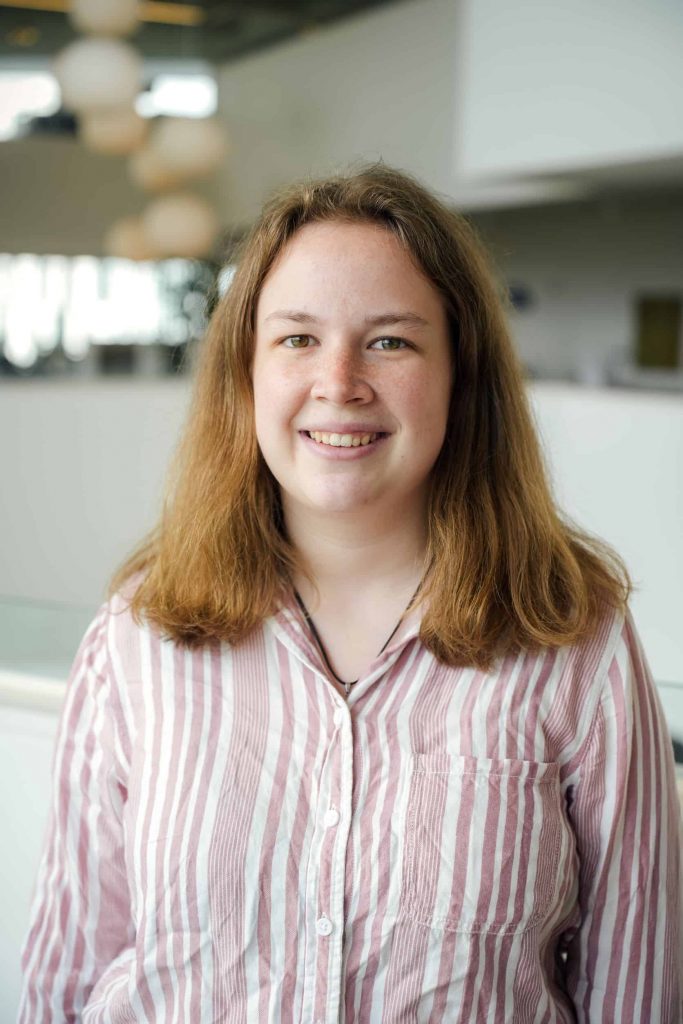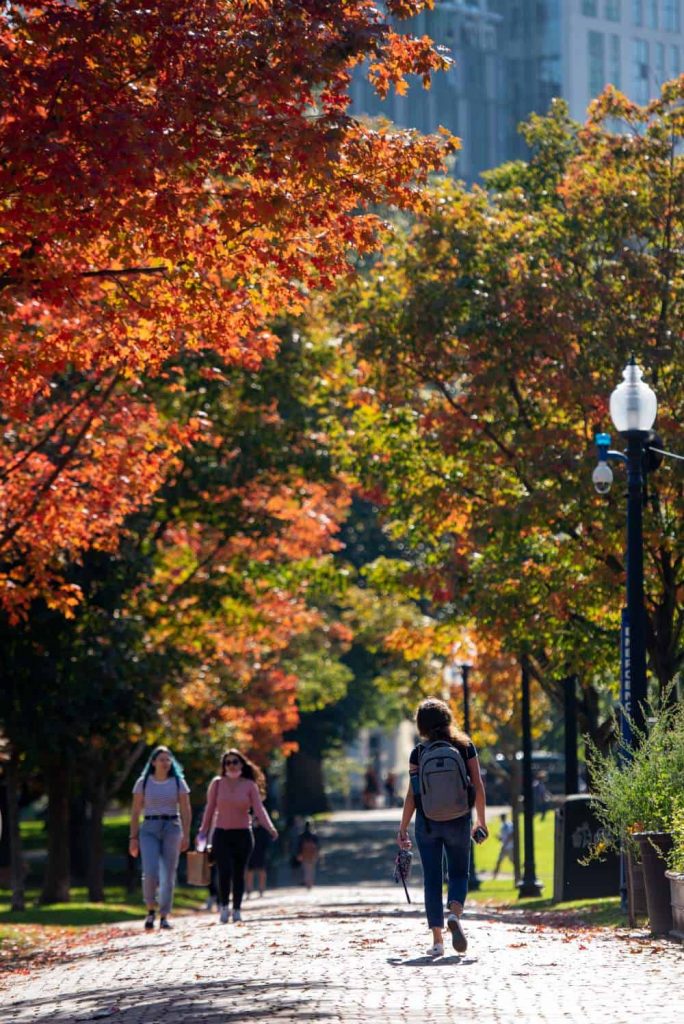
Today we’re giving you a glimpse of what it’s like to be a grad student in the Political Communication program. We talked to Abigail Velletri, a current student in Emerson’s Political Communication 4+1 program, and asked her all about the experience. Abby is originally from Connecticut and will graduate with her master’s degree in the spring of 2023.
What is a 4+1 Program?
Emerson offers four different 4+1 programs. Each program allows Emerson undergraduate students to earn both a bachelor’s and master’s degree in only five years.
Abby is currently in her final year of the Political Communication 4+1 program, and she met with us to answer some questions about her experience.
Why did you choose 4+1?
“Coming into college, I didn’t know what I wanted to do for my major,” Abby explained, “so I kind of picked Communication Studies while I figured things out.” The major seemed like it would give her valuable skills, even if she wasn’t sure what she wanted to do after graduation.
“I read online about Emerson’s 4+1 programs, and at that point I was really getting interested in political and environmental issues. I had taken one environmental studies class and I remember the professor telling us that most of the solutions for climate change are political, not scientific. We need people to vote for the politicians and laws that will help with climate change.”
Her professor’s comment helped Abby realize that she wanted to work in politics to help promote social change. Abby asked her advisor more about the Political Communications 4+1 program and applied.
Is your experience different from 2-year master’s students?
“At first, I felt really young in the program,” Abby admitted. She remembers seeing graduate students in the traditional 2-year track who were in their thirties. That age gap initially made Abby worry that she wasn’t as qualified as her peers to be in the program, but the feeling quickly dissipated. “I started getting to know my professors and meeting more people, and now I have other 4+1 friends in the program,” Abby said. Abby enjoys her classes and is happy she is earning her master’s degree in less time than most other graduate students.
How was the transition into graduate classes?
Abby said that everyone in her graduate courses seemed more invested in their homework and readings. She explained that everyone is personally invested in their graduate education, which she didn’t always see in undergraduate students.
Abby herself soon experienced this increased dedication, explaining, “My classes were more engaging to me once I knew what field I wanted to work in. The assignments I get now are less tedious and I don’t procrastinate as much because everything feels more purposeful.”
What does a day in your life look like?
“In the mornings I get up, eat breakfast, and get ready for my day. Then I either go to work at the Little Building or work my remote job.” Her job at the welcome desk in the Little Building allows Abby to study during slow shifts, and she also finds time after work to do her homework.
After work, Abby will either head home or go to class. In the Political Communication program, classes are usually from 6:00-9:45 pm. “My classes so far have been a mix of lecture, activities, and class discussion. Most often we’ll have a lecture or guest speaker and then have a discussion during or after the presentation,” Abby explained. This semester Abby is taking Crisis Communication and Political Communication in person and Emerging Communication Technologies online.
If she has time, Abby also tries to go on a walk each day to get some fresh air.
If you could give your past self advice, what would it be?
“Well, I wish I had known what I wanted to do,” Abby said. “I know that’s not something I could have controlled, but Emerson has really great resources, and I think if I had more of a direction in undergrad, I would have used those resources more.”
Abby also said she would have started going to office hours sooner. She remarked how helpful her professors have been when she stops by, and she wishes she would have done so earlier.

Would you recommend a 4+1 program?
Abby answered with an immediate yes. “There’s a lot of benefits. The main one is that you get your master’s in one extra year, not two.”
Abby also mentioned the financial benefits of a 4+1 program. Any graduate-level courses taken in your senior year as an undergraduate will be billed as undergraduate classes. “So, you really only pay one year’s worth of graduate tuition, which is very nice,” she added.
Another perk is reduced stress in the application process. Applying to the 4+1 program wasn’t overly stressful for Abby because her advisor helped her with any questions she had.
“You’re also already settled in Boston and know the school,” she added, “so it’s nice getting your master’s in a familiar place. You don’t have to worry about figuring out a new city on top of navigating a graduate program.”
What’s next for you after graduation?
Abby would like to either do advocacy or research work. “I have experience with both political and marketing research, and I found I really enjoy that,” she added. Abby noted she would also love to work as a social or environmental advocate, using her communication degrees to make positive changes.


Leave a Reply